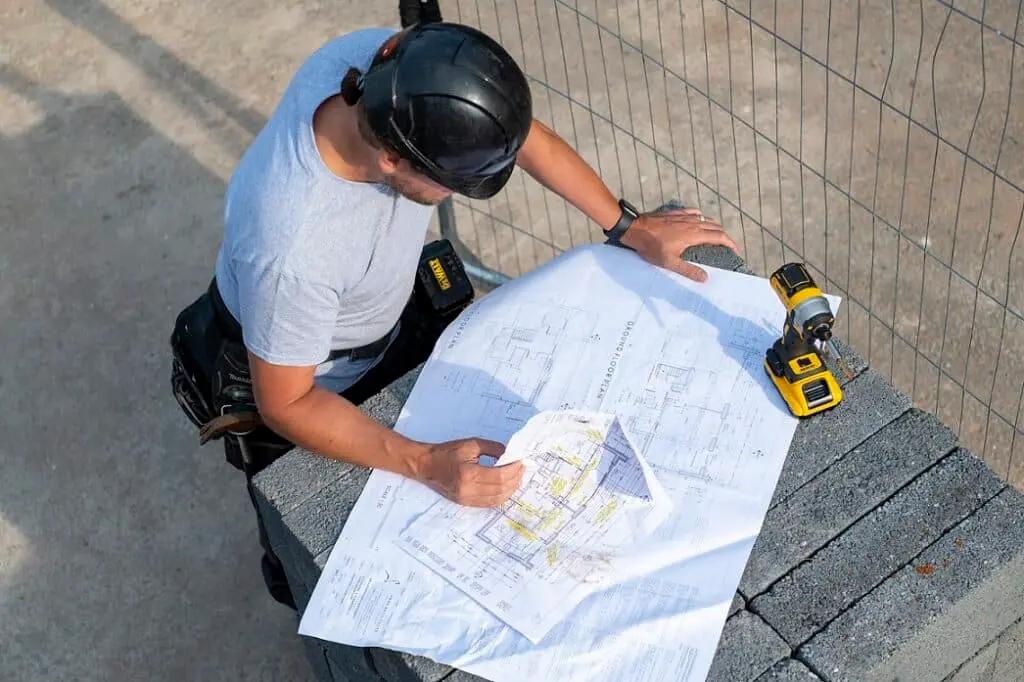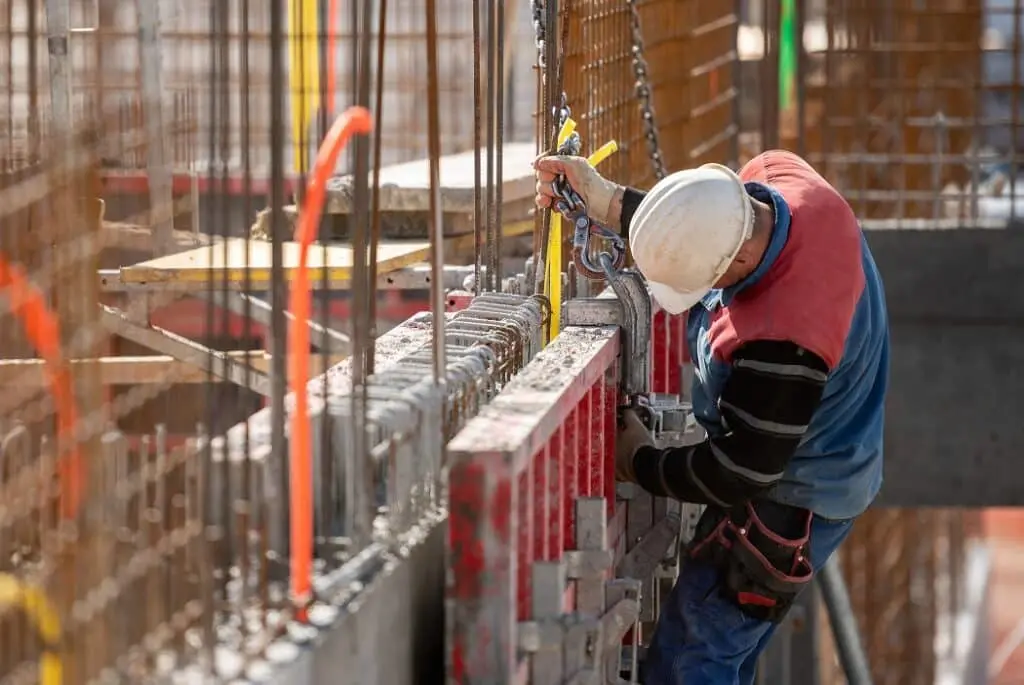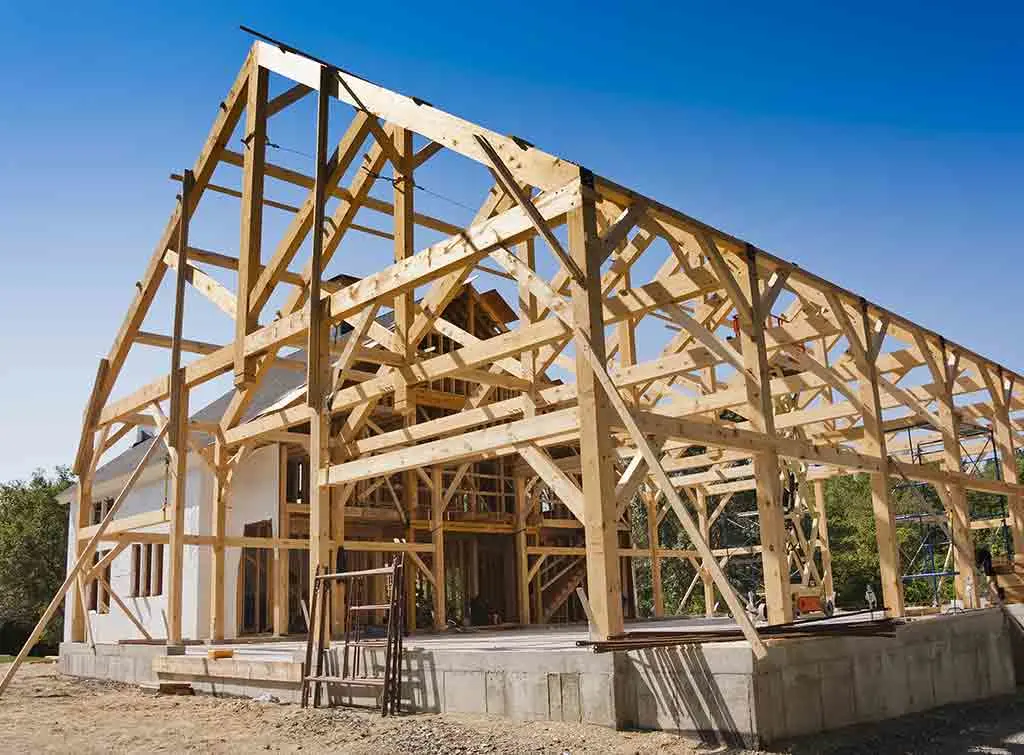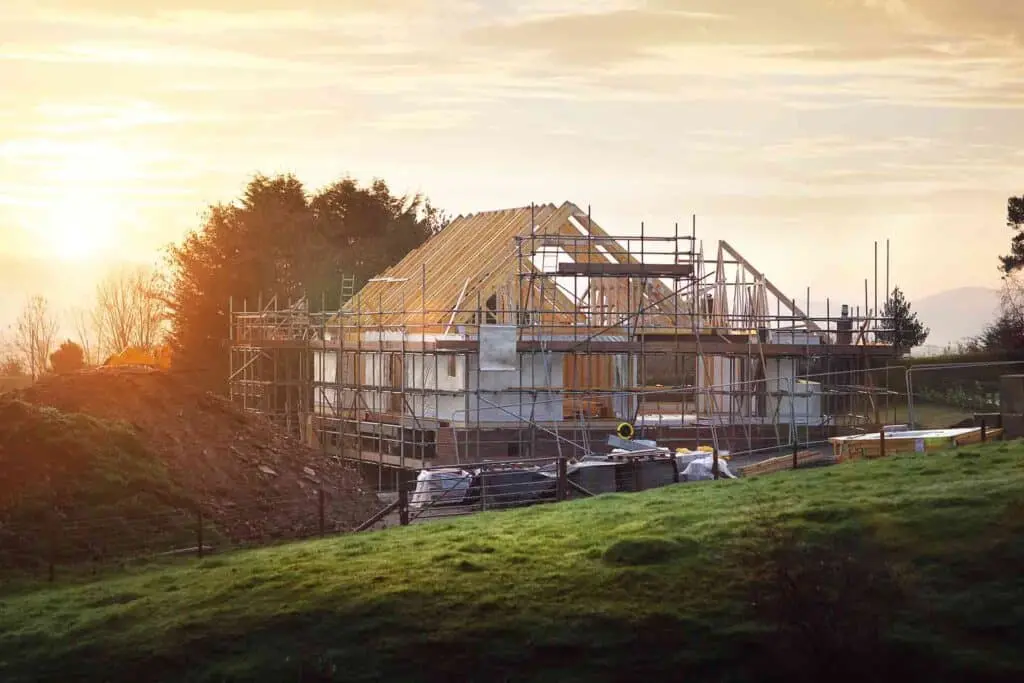Blog>Trade>Starting a Business>How to start a construction company
Last updated: 7 January 2025
How to start a construction company
When it comes to satisfying trades, you can’t do much better than construction. And if you’ve been in the building industry a while, you might be thinking about starting your own business. Here’s everything you need to know about how to start a construction company.

Why start a building business?
For those of us who work with our hands, there’s nothing quite like seeing a long project finally get finished.
This is particularly true for those in the building trade, who might spend several months working on the same project.
Of course, it’s also just as satisfying to be able to choose what projects you work on.
That’s why so many experienced builders eventually end up looking into starting a construction company of their own. Giving them the freedom to choose who, where, and when they work.
Starting a new business from scratch in any industry is no easy task
Though if you’re looking to understand the ins and outs of how to start a construction business, read on.
We’ll guide you through all the essential considerations, including financing, licenses, and common mistakes to avoid.

Creating a construction business plan
To start any new business successfully, one of the first things you need to do is build a business plan. (Pun intended!)
This will help you to outline your initial and future goals with actionable steps and highlight how to meet them. All while ensuring your business stays focused, organised, efficient, and productive past the first few months.
When thinking about making a business plan for starting a construction company, you should look at the following:
Business goals – the initial aims of your business and how you plan to achieve them
Initial costs – how you intend to finance your business until you start turning a profit
Finances – how you plan to monitor and manage your finances, either by yourself or with the aid of an accountant
Services – what specific building services you’re going to offer your customers
Target market – what area of the construction industry you plan to operate in
Prices – how much you plan to charge for your services
Logistics – how you intend to purchase and transport the necessary materials to complete your jobs
Operational area – where exactly you plan to operate, as well as the maximum range of your work area
Marketing – how you plan to market your business to your customers
Working hours – how many days and hours you plan to work per week
As you can see, there’s a lot to consider with a business plan, and it can be quite intimidating.
That’s why you can read even more about them in our guide on writing a business plan. Don’t forget to download our free business plan template as well.
What qualifications are needed for starting a construction company?
If you’re already knowledgeable in the construction industry, you’re likely already qualified to start a building business.
However, if you’re new to the trade, then you need to make sure you have the right qualifications. As well as considerable hands-on work experience.
In order to gain this experience, you need to look into attaining the right certifications. We recommend the following courses as a starting point:
The Level 1 and 2 Certification in Construction Skills
NVQ qualifications in construction work
Alongside these, we also highly recommend looking into joining an apprenticeship scheme. Not only will you learn the essential skills needed to master your craft, but you’ll also earn as you learn.
And remember, you can always take on more certifications down the line. This is especially useful for building trust with your future customers, as certifications show competency.

Other construction qualifications
While getting training is crucial for anyone looking at how to start a building company, so are certain qualifications.
These qualifications are essential for anyone who wants to operate on a building site. And they also clearly display to customers that you know what you’re doing.
Trade accreditation
The Federation of Master Builders (FMB) is an ideal way to show off your skills, helping you to gain more clients in the future.
However, all prospective members must pass an assessment and inspection process. This is why it’s important to complete adequate training beforehand.
But upon completion of this assessment to the desired standards, you’ll be able to display your FMB badge. This means you can impress your customers with the fact that you’re a recognised expert in construction.

Construction Skills Certificate Scheme (CSCS)
Regardless of what area of construction you plan to work in, it’s a legal requirement to have a CSCS card. If you don’t, you won’t be allowed to work on any construction sites, meaning you’ll miss out on work.
What important business skills do builders need?
Knowing how to start a building company is about more than just your skills and certifications.
You also need different business skills so you can handle the highs and lows of running your own company.
That’s why we highly recommend looking into all the following areas when starting a construction company:
Construction knowledge – it goes without saying that anyone in the building business needs a good degree of construction knowledge to do their job properly. Such as knowing whether or not your team might need dry liner training to complete a project
Attention to detail – building work, like many trades, is precise, which is why you should look to cultivate your attention to detail in all areas of your work
Organisational skills – running a business is a fairly complex task. From logistics to finances, you need to be sure you’re organised to stay on top of everything
Interpersonal skills – as the boss of your own business, you’re going to be constantly meeting new customers. Which means you need to be able to interact with them in a professional manner
Managerial training – being a boss also means taking on new employees, which will be made that much easier with the right managerial training
Patience and endurance – unlike other trade industries, construction projects can take a long time to finish, and you’ll need the patience and endurance necessary to ensure your work quality doesn’t slip
Numeracy skills – naturally, part of running a business is dealing with the finances and logistics that come with it, which makes a good understanding of mathematics essential
If this seems like a lot to consider, don’t worry. We go into all of these areas and more in our article on becoming your own boss.
Create solid foundations for your new construction company
Find more work and enjoy savings as a member
How to start a building business
With initial considerations out of the way, let’s look at the first steps to take when starting a construction company.
From registering your business to construction insurance and safety regulations, we’ve covered it all below.
1. Registering your business
One of the very first things you’ll need to do is create a name for your construction company. And register your business with HMRC. The latter of these is very important, as you can’t legally operate without being registered.
However, registering is not as simple as telling HMRC that your business now exists. Instead, you need to choose whether your new company will be a sole trader or a limited company.
Take your time researching the difference between these two business types. Both have their own advantages and disadvantages, and you want to pick the one best suited for your business style.

2. Applying for business insurance
Business insurance is vital to protect you, your business, your income, and any third parties, should the worst happen.
This means you need to consider a range of insurance options to cover all your bases. This could include:
Public liability insurance – this type of insurance will protect you in the event a member of the public is injured during work, and is usually a contractual requirement for projects
Professional indemnity insurance – this type of insurance will protect your name and reputation from legal costs associated with unsatisfied clients claiming faults with your work
Tool insurance – this type of insurance will ensure you have the funds to replace any tools or equipment that are damaged or stolen, either on-site or at home
Employer’s liability insurance – this type of insurance will give your employees financial cover should they be injured at work and is a legal requirement for all employers
If you want help finding the right policies for your needs, we suggest speaking with a construction insurance specialist.
You can also read our articles on insurance for builders and picking the right tradesperson insurance for more information.
3. Registering for the Construction Industry Scheme (CIS)
Regardless of what building business you set up, it’s a legal requirement for you to join the Construction Industry Scheme (CIS).
The CIS is designed to make payments from contractors to subcontractors accountable. Allowing for tax on a subcontractor’s pay to be taken ‘at source’ by a contractor and sent to HMRC.
You can find out more about this topic in our article covering the CIS in depth.
Create solid foundations for your new construction company
Find more work and enjoy savings as a member
4. Accounting and bookkeeping
As a business owner, it’s crucial you stay on top of your books to avoid running into financial trouble.
You need to have a clear picture of the money coming in and out of your business. This means monitoring your cash flow, claiming relevant business expenses, and preparing for your tax liabilities.
We suggest reading our article on small business accounting for more information on the topic.
5. Buying your construction tools and equipment
As a builder, one key investment you’re going to have to make is in what tools you use. After all, a tradesperson is only as good as their gear, right?
To make sure you have everything you need to get off the ground, we suggest investing in the following equipment:
Ladders
Drills
Different types of saws
Hammers
Basic tools, such as screwdrivers, pliers, wrenches, and spirit levels
The buying or hiring of large machinery, like diggers and excavators, as and when required
Basic supplies that you’ll need again and again, such as adhesives, plaster, paint, cement, etc…
On top of these, you’ll need to invest in transportation to move your equipment and supplies between sites.
Take a look at our article on the best van lease deals to find the right vehicle for your needs.
And don’t forget – if you become a Checkatrade member, you get discounts on any tools and vehicles you buy.
More than just an online directory listing
Get support and a range of money-saving discounts to help get your business off the ground

Construction health and safety regulations
Anyone looking into how to start a business in construction needs to be aware of the relevant health and safety regulations.
These regulations are stringent and must be followed to the letter by you and your employees to avoid legal repercussions.
Things that can be considered for safety when starting a construction company include:
Creating simple risk assessment forms
Carrying out risk assessments for potential projects
Invest in a wide range of construction PPE
It’s therefore crucial you read up on health and safety in the construction industry as a priority. Similarly, before launching your construction business, you need to be up to speed with the most recent building regulations as well.
5 ways to improve construction site safety
In this day and age, there’s little room for unchecked health and safety hazards in the workplace. And when it comes to construction site health and safety, where injuries are common, a safe and secure site is paramount. Whether it’s a small-scale extension project or a grand residential scheme
Save money and save time with Checkatrade
So, hopefully, you should now have all the information you need for how to start a business in construction. But did you know we can offer more than just advice at Checkatrade?
As long as you pass up to 12 checks, you’ll instantly be seen as a trusted business, and you'll be able to offer our work guarantee.
Benefits of membership to consider when starting a construction company are:
Optimised business profile - for contact details, reviews and photos of work
Dedicated membership advice team
Access to trades app - for job management, updating profile and quoting/invoicing
Savings on public liability insurance thanks to Superscript
Exclusive offers and discounts
Speak with our team today to learn more about becoming a member, as well as the other services we offer.
More than just an online directory listing
Get support and a range of money-saving discounts to help get your business off the ground

Construction business FAQs
How much does it cost to start a construction business?
Beginning any company is expensive, especially when you take into account the materials and legal costs. Therefore, it’s hard to provide a solid answer as to how much you might have to spend to get started.
That’s why we suggest doing thorough research in this area before committing to such an investment.
How much can I charge for construction services?
Deciding how much to charge for your company’s services is something you need to put a little thought into.
You don’t want to charge too much as this will put off customers. But if you charge too little, this will affect your profits. We've created a handy pricing template to help you factor in all your costs.
Therefore, you should consider the following areas before setting your prices:
How much experience do you and your employees have? If you’re offering services by experienced workers you can increase your prices
How much training do you and your employees have? Multi-skilled tradespeople generally offer more varied services with a high-quality finish, meaning you can increase your prices
Where are you located? If your company is based in London or an area with higher living costs, it may be time to raise how much you charge
What services do you plan to offer? Every different job will have a different price point, so it’s worth setting dedicated costs for each service you offer
How much are your competitors charging? It may be a good idea to look into the amount your competitors charge for different jobs so your prices will stay competitive
For more insight into how to set your prices, you might want to read our article on builder salaries.
More than just an online directory listing
Get support and a range of money-saving discounts to help get your business off the ground



